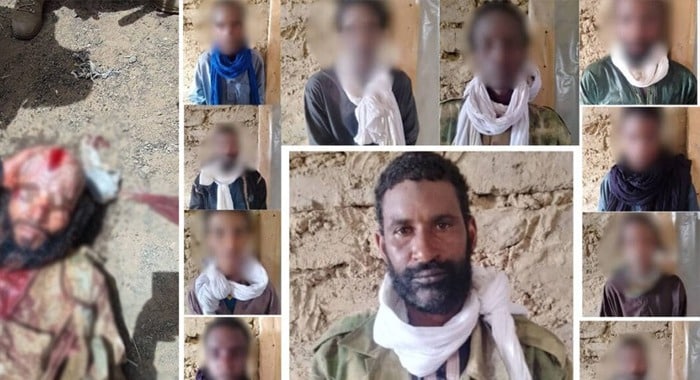In a major counterterrorism breakthrough, the Armed Forces of Mali (FAMa) have announced the elimination of Abu Dahdah, a senior commander of the Islamic State in the Greater Sahara (ISGS), during a high-precision military operation in the embattled Ménaka region of northeastern Mali, near the border with Niger. According to an official communiqué issued via the Malian military’s verified Facebook page, Abu Dahdah was killed on Saturday, June 28, in the Chimam area, an ISGS stronghold. One of his personal bodyguards was also neutralized in the strike, which Malian officials described as a “decisive action against a high-value terrorist target” who was instrumental in coordinating attacks across Mali, Burkina Faso, and Niger.
While the Malian authorities have not officially disclosed Abu Dahdah’s nationality, multiple intelligence sources and regional media outlets report that he was likely a Moroccan national, long embedded in ISGS’s Sahel command. He was reportedly responsible for planning and overseeing cross-border assaults, civilian massacres, and ambushes against military convoys in the tri-border zone, where Islamic State-linked violence has surged in recent years.
In a parallel development highlighting the growing pressure on ISGS, another senior commander, identified as Abu Bakr Ibrahim, surrendered to the Malian military along with ten of his associates. The surrender reportedly without resistance has been confirmed by military sources, though further details regarding the exact location and terms remain undisclosed due to operational sensitivities.
Security analysts across the region have hailed these back-to-back developments as a potentially game-changing moment in Mali’s protracted battle against extremist insurgencies. “The elimination of Abu Dahdah and the surrender of Abu Bakr Ibrahim represents both a strategic and symbolic blow to ISGS in the Sahel,” said a West African counterterrorism expert based in Senegal. “The Malian Armed Forces are demonstrating growing autonomy and capability after years of foreign military dependence.”
The Islamic State in the Greater Sahara, one of the most violent and fast-expanding IS affiliates in Africa, has been blamed for hundreds of civilian deaths, the displacement of entire communities, and attacks on rival jihadist factions, particularly Jama’at Nusrat al-Islam wal-Muslimin (JNIM), the Al-Qaeda branch active across Mali, Burkina Faso, and Algeria.
The Malian Armed Forces reiterated their commitment to eradicating all terror networks operating on national soil and urged remaining fighters to surrender and reintegrate through state-sponsored reconciliation frameworks.
The recent successes come amid Mali’s broader recalibration of its national security strategy, following the withdrawal of international forces including France’s Operation Barkhane and the United Nations Multidimensional Integrated Stabilization Mission in Mali (MINUSMA). Since the security transition, the government has intensified military campaigns particularly in the Gao, Mopti, and Ménaka regions.
While the latest operations underscore Mali’s growing military initiative, international observers, including the African Union, the Economic Community of West African States (ECOWAS), and partners such as Algeria, caution that sustained peace will require not only military victories but also political dialogue, civilian protection, and regional coordination.





